- Massive Range
- FREE UK Delivery
- Rapid Dispatch
- Massive Range
- FREE UK Delivery
- Rapid Dispatch
- Massive Range
- FREE UK Delivery
- Rapid Dispatch
Menu
Home » Protecting Mild Steel Tubing from Corrosion: A Comprehensive Guide
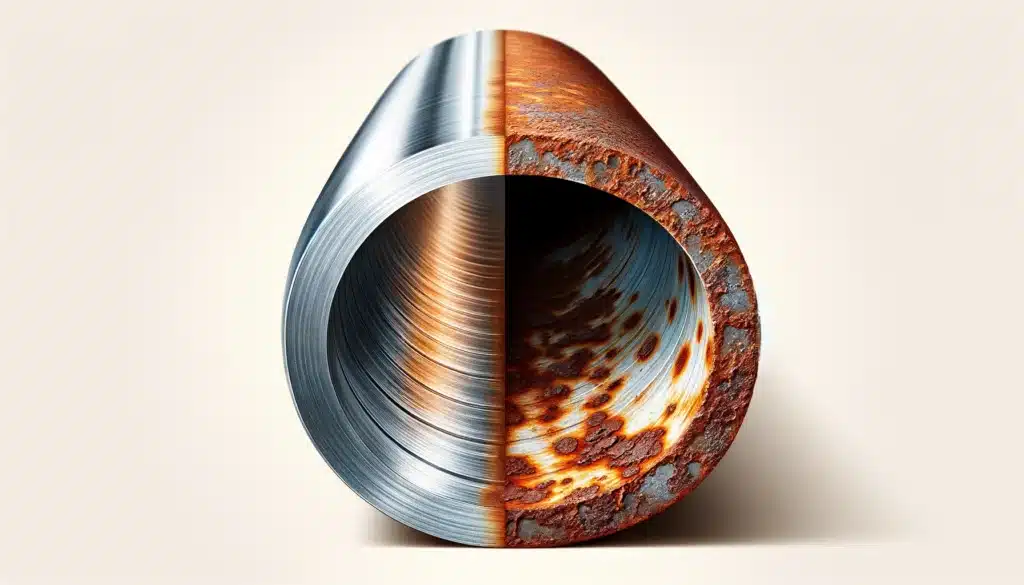
The versatility and cost-effectiveness of mild steel tubing make it a great material for construction and auto parts.
Despite its strengths, mild steel tubing is prone to corrosion when exposed to moisture. If left unchecked, this vulnerability can shorten its useful life and compromise structural integrity. This guide explores a variety of ways to fortify mild steel tubing against corrosion’s insidious effects.
Using these strategies, mild steel tubing will enjoy enhanced durability and continued reliability, protecting your projects for years to come. Speciality Metals offers an extensive selection of mild steel round tubing, perfectly suited for a variety of applications. In addition to providing superior materials, we emphasise the importance of ongoing maintenance and corrosion protection.
Let’s get into it…
Corrosion of mild steel tubing is a complex process influenced by many factors, including environmental exposure and metal reactions. As a result of iron reacting with oxygen and water, mild steel is particularly susceptible to rusting, a form of corrosion. During this reaction, iron oxide is formed, weakening the metal and compromising its structural integrity. An additional concern is pitting corrosion, which produces localised, small holes or pits on steel’s surface, resulting in significant material loss and failure.
By detecting corrosion early, minor issues can be prevented from escalating into major structural issues. Early detection of rusting or pitting enables rapid action, whether through cleaning, coating, or replacement of affected sections.
In order to implement effective preventive measures and ensure the longevity of mild steel tubing in various applications, it is crucial to understand environmental conditions that exacerbate corrosion, such as high humidity, salt exposure in coastal areas, or chemical exposure in industrial settings.
Mild steel corrosion is primarily controlled by protective coatings and paints, which provide a barrier between the metal and corrosive elements. Zinc is one of the most effective methods of protecting steel, as it shields the base metal and also offers sacrificial protection. With powder coating, a dry powder is applied and cured under heat, forming a hard layer that resists corrosion, impact, and wear.
The surface of mild steel tubing must be meticulously cleaned to remove rust, grease, or debris before coating or painting. By priming the surface, you can enhance the coating’s effectiveness, providing an additional layer of protection and improving paint adhesion. It is important to consider the specific environmental challenges and aesthetic requirements of your project when selecting coatings or paints. As an example, epoxy coatings are known for their durability and chemical resistance, making them suitable for industrial applications. Acrylic paints, on the other hand, offer a variety of colors and finishes for decorative purposes.
Specialty Metals recommends carefully selecting coatings and paints that will not only protect mild steel tubing from corrosion, but also contribute to the project’s overall aesthetics and functionality.
You can ensure optimal protection and longevity for your mild steel tubing projects by tailoring your selection to the application’s specific environmental conditions and performance requirements.
By minimising mild steel tubing’s direct exposure to corrosive elements, environmental and physical protection strategies can extend its lifespan. In this regard, design considerations are crucial. By designing structures with sloped surfaces, mild steel tubing can prevent water accumulation, a major catalyst for corrosion. Furthermore, cladding or protective shields can further isolate steel from corrosive environments, reducing corrosion risk significantly.
Another cornerstone of corrosion prevention is routine maintenance, which includes routine inspections and cleaning. By performing periodic checks, rust spots or corrosion signs can be detected early, enabling timely intervention before substantial damage occurs. The maintenance of protective coatings and steel beneath is especially important in industrial or coastal settings where pollutants and salt can accumulate on surfaces. By using gentle cleaning agents and soft brushes, harmful substances can be removed without damaging protective layers.
The use of sacrificial anodes and cathodic protection offers a sophisticated means of guarding against corrosion, particularly in highly corrosive environments like marine settings. A sacrificial anode is made from a metal that is more reactive than steel, such as zinc or magnesium. By corroding instead of steel, these anodes “sacrifice” themselves to protect the underlying material. During cathodic protection, a small electrical charge is applied to the metal to prevent it from oxidizing. In vulnerable settings, both methods are highly effective at extending the durability of mild steel tubing.
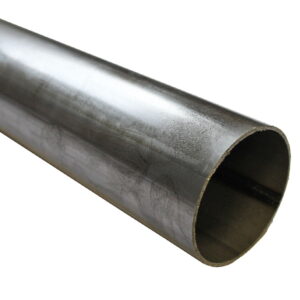
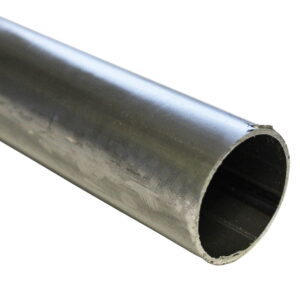
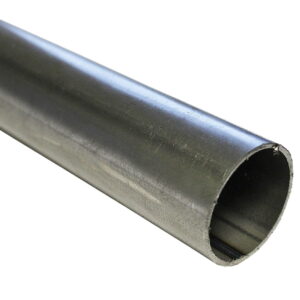
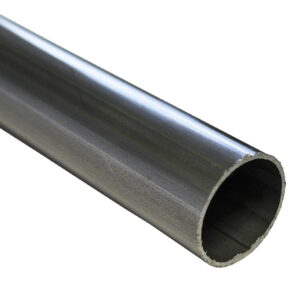
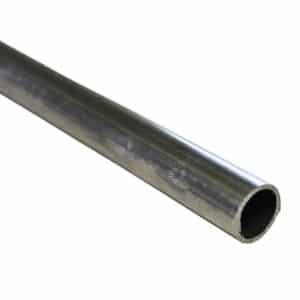
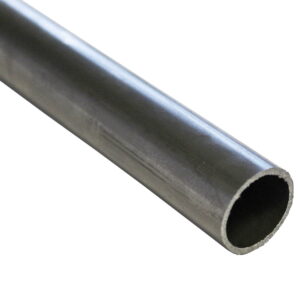
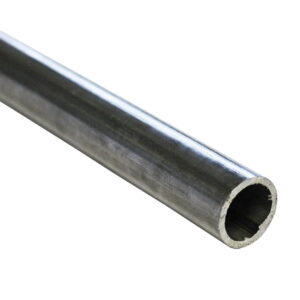

As corrosion protection for mild steel tubing evolves, advanced treatments and technologies offer new layers of protection. A hot-dip galvanisation is still the best way to protect steel from moisture and pollutants, immersing it in molten zinc to form a tough, protective layer. It’s possible to apply corrosion inhibitors to a metal’s surface or add them to environments like cooling systems to protect internal components from corrosion.
New materials and technologies are redefining corrosion resistance. For instance, nano-coatings create incredibly thin, yet highly effective protective layers on mild steel surfaces. They’re resistant to corrosion, wear, and UV damage. These corrosion-resistant alloys, developed through material science advancements, offer enhanced protection without extra coatings, making them ideal for harsh environments.
Case studies from various industries demonstrate the effectiveness of these advanced corrosion protection measures. In coastal areas prone to salt spray, hot-dip galvanized mild steel tubing has shown remarkable resilience. Also, automotive components treated with corrosion inhibitors or made from corrosion-resistant alloys can stand up to road chemicals and weathering, which shows the potential of these innovative solutions for mild steel tubing.
The battle against corrosion is essential to preserving mild steel tubing’s functionality and aesthetics.
Speciality Metals is proud to offer a wide selection of mild steel round tubing, each backed by our knowledge of corrosion protection. Our commitment to quality ensures that our clients receive materials that are both resilient and tailored to their specific needs. Integrating corrosion prevention into your mild steel applications is the best way to ensure the durability and effectiveness of your investment and ensure the integrity of your work.
Understand the unique properties of mild steel and the environmental factors at play when selecting and maintaining materials.
As always, thank you for checking out our blog. We hope that this helps you with your project.
Please also check out the other articles in our helpful guide series. We have written about aluminium sheeting and checker plate recently to name but two of our articles.
We are also proud to sell this product on our highly popular eBay store, check us out there too.
If you have any further questions, feel free to contact us.
Speciality Metals
Unit 1, Farrell Street, Warrington,
Cheshire, WA1 2WW, United Kingdom
Quick Links
Payment Options
